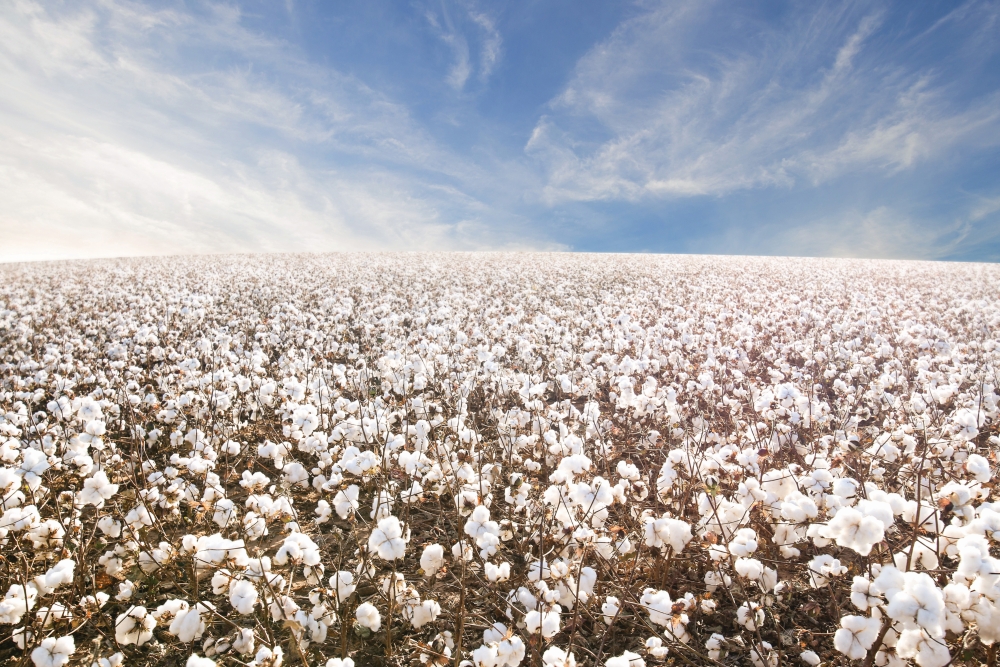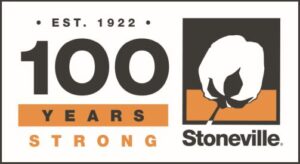PRIMED FOR ANOTHER 100 YEARS
Trait development expert Fred Moore believes the Stoneville® cotton brand has forged a special connection with growers

When Fred Moore is asked what he enjoys most about his role as Vice President and Head of Trait Development for BASF, the Ph.D. answers the question with two words. “The people,” Moore said. “I’m thankful for growers, who not only feed us but clothe us. I’m also thankful for the passionate people within BASF, who are constantly looking for the new technologies and solutions to help growers in their efforts to feed and clothe us.”
Moore, who is based at BASF’s Seeds Innovation Center in Lubbock, Texas, rejoined the company in 2018 after it acquired significant parts of Bayer CropScience’s seed and non-selective herbicide businesses, including the Stoneville® and FiberMax® cotton brands, as well as Liberty® herbicide and LibertyLink® herbicide tolerance traits. He worked for Bayer from 2016-2018 and had previously worked for BASF from 2007-2016. Moore calls Stoneville cotton “the heart” of the cotton industry. “It’s one of the oldest and most recognized brand,” he added, noting that he’s “amazed” at its longevity and believes the brand is well positioned to last another 100 years.

Fred Moore
“BASF is bringing forward several new technologies, not just to help support growers in their need to address the constant pest issues that they encounter annually, but the germplasm component is also something that we continue to drive forward,” he said. “Our breeding team is well invested in bringing that forward. Another 100 years is not out of the question.”
Moore and his team are responsible for evaluating and preparing innovative technologies in the pipeline. “We receive the technologies from our trait research colleagues with whom we work closely,” he said. “From that point, we drive those technologies forward through the pipeline and prepare them for commercialization.” Moore explained that he and his team ensure those technologies, whether they are traits for herbicide, insect control, disease or crop efficiency, are selected for the best elite event and for that elite event to perform the way growers expect it to. “That’s not only in the right germplasm, but that’s in the right technology stacks that the grower expects,” he added. Moore pointed out that germplasm varies from growing area to growing area because requirements for specific environments are different.
“If you look across the U.S. Cotton Belt, germplasm requirements are very different,” he said. “Being able to offer germplasm that is specifically created and dedicated to select environmental requirements is what differentiates Stoneville cotton.” Moore, who holds a bachelor’s degree, master’s degree, and Ph.D. from Texas A&M University, has worked across crops throughout his career. Cotton was one of those crops but not Moore’s primary focus until 2016. He is as enthusiastic as ever about cotton and BASF’s role in the industry. “I very much believe in BASF’s ability to provide for the needs of growers across the U.S. and internationally,” Moore said.
| “BASF IS BRINGING FORWARD SEVERAL NEW TECHNOLOGIES, NOT JUST TO HELP SUPPORT GROWERS IN THEIR NEED TO ADDRESS THE CONSTANT PEST ISSUES THAT THEY ENCOUNTER ANNUALLY, BUT THE GERMPLASM COMPONENT IS ALSO SOMETHING THAT WE CONTINUE TO DRIVE FORWARD.” – FRED MOORE |
In terms of what growers expect in technology, herbicide tolerance is a trait that has been and still is “table stakes,” Moore said. For instance, glyphosate tolerance continues to be a key demand within each offering, regardless of whether it’s from Stoneville cotton or a competing brand, he added. “But what differentiates BASF and Stoneville® cotton specifically are the technologies we have coming forward,” Moore noted. Subject to applicable regulatory approvals, “We want to give growers another tool … herbicides that have traditionally not been used in cotton. They have been used in other crops, but not in the cotton growing areas. We want to give growers more tools to control specific weeds that are problematic for them.”
Moore said BASF and Stoneville cotton also want to introduce native traits and other technologies to help thwart diseases and insects and to address crop-efficiency components such as drought. “We’re looking for traits within the germplasm spectrum that give plants the opportunity to make it through short cycles of drought stress and still provide not only yield but the fiber quality that is expected,” he said. Moore believes Stoneville cotton has lasted 100 years because the brand has forged a special connection with growers, something he doesn’t doubt the brand will continue to do for the next 100 years. “Each cotton field doesn’t have the same types of problems,” Moore said. “Conditions and situations change from field to field, and what that requires for us is to continue to be very close to growers to understand their specific needs.”




